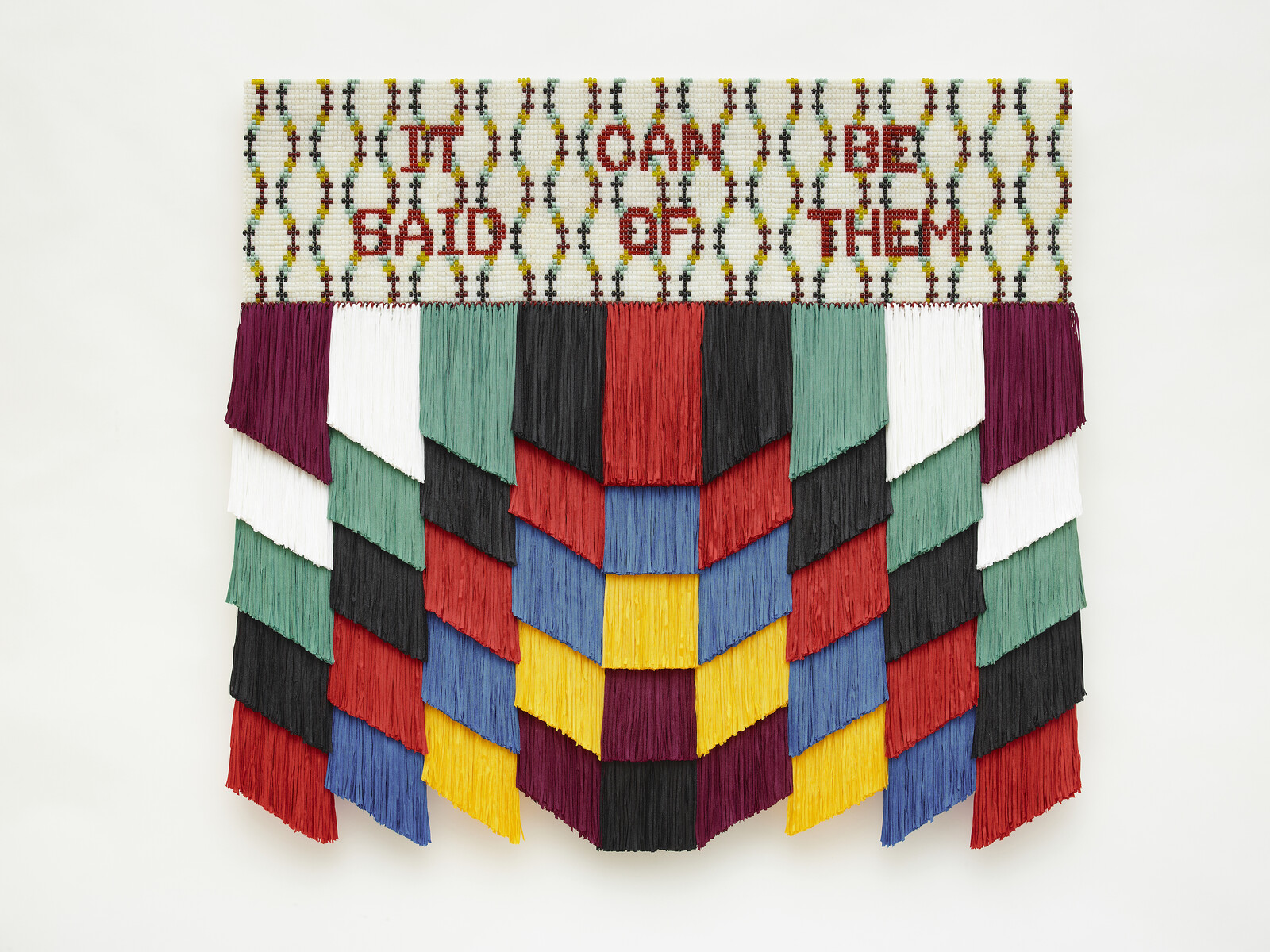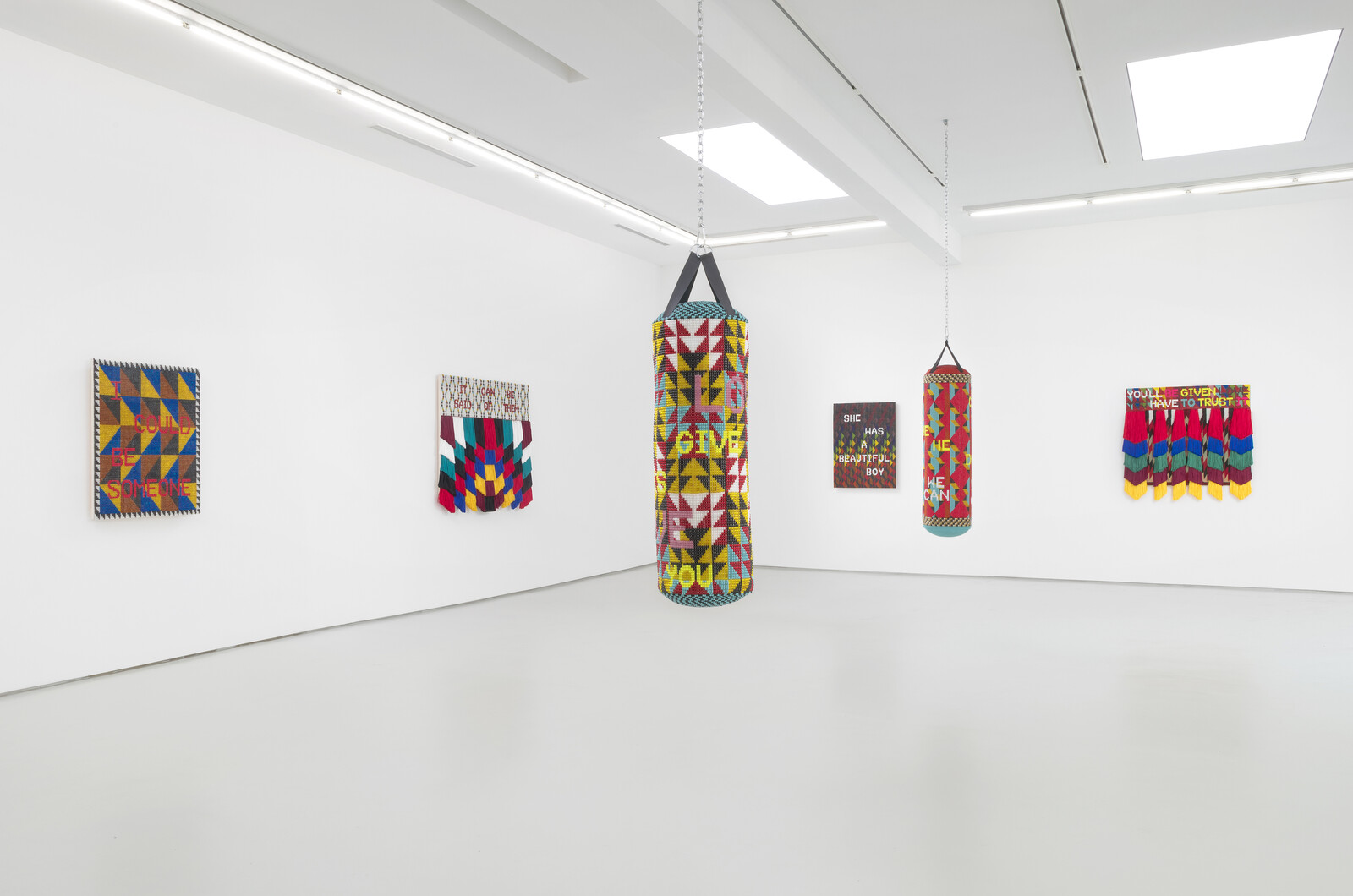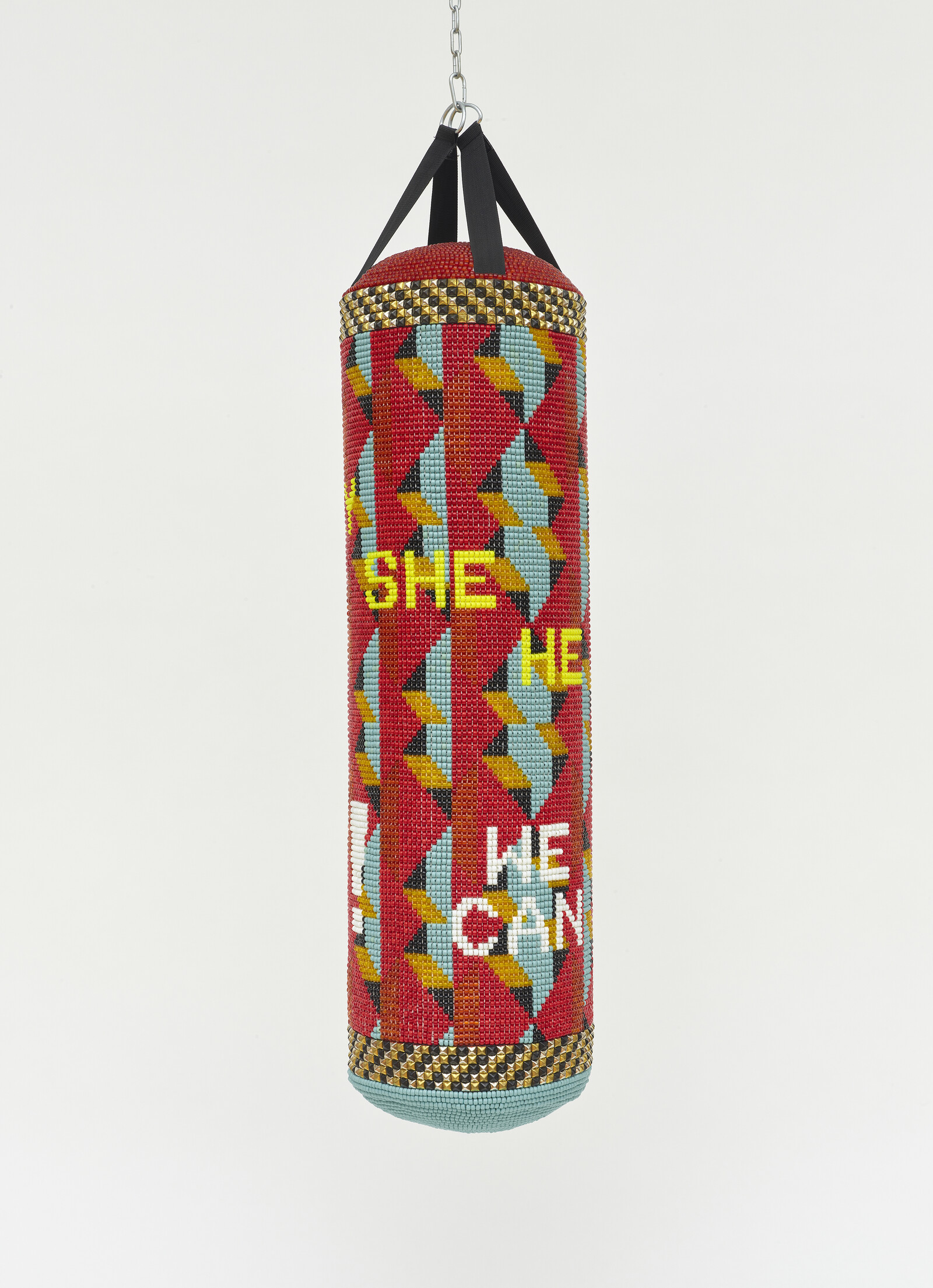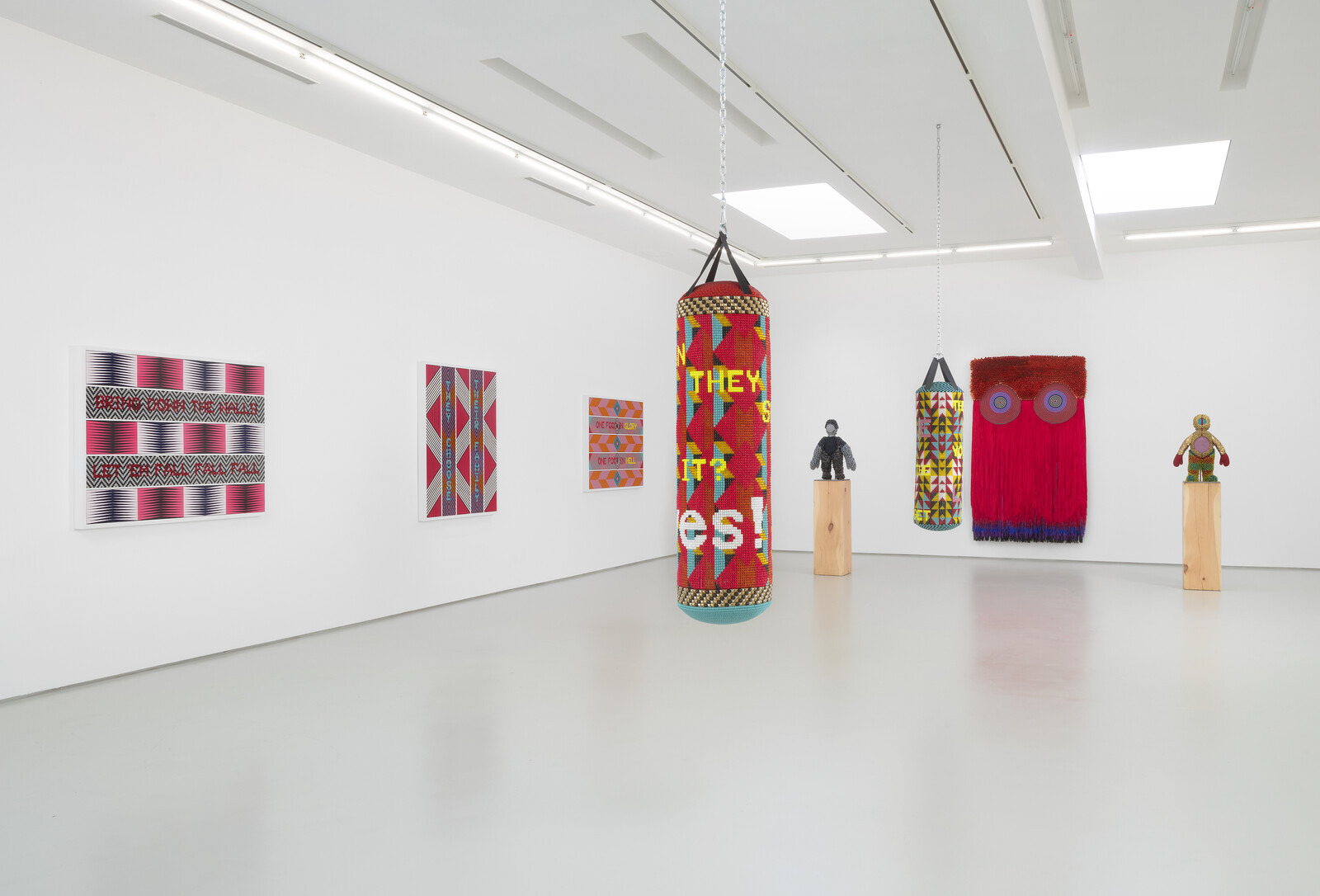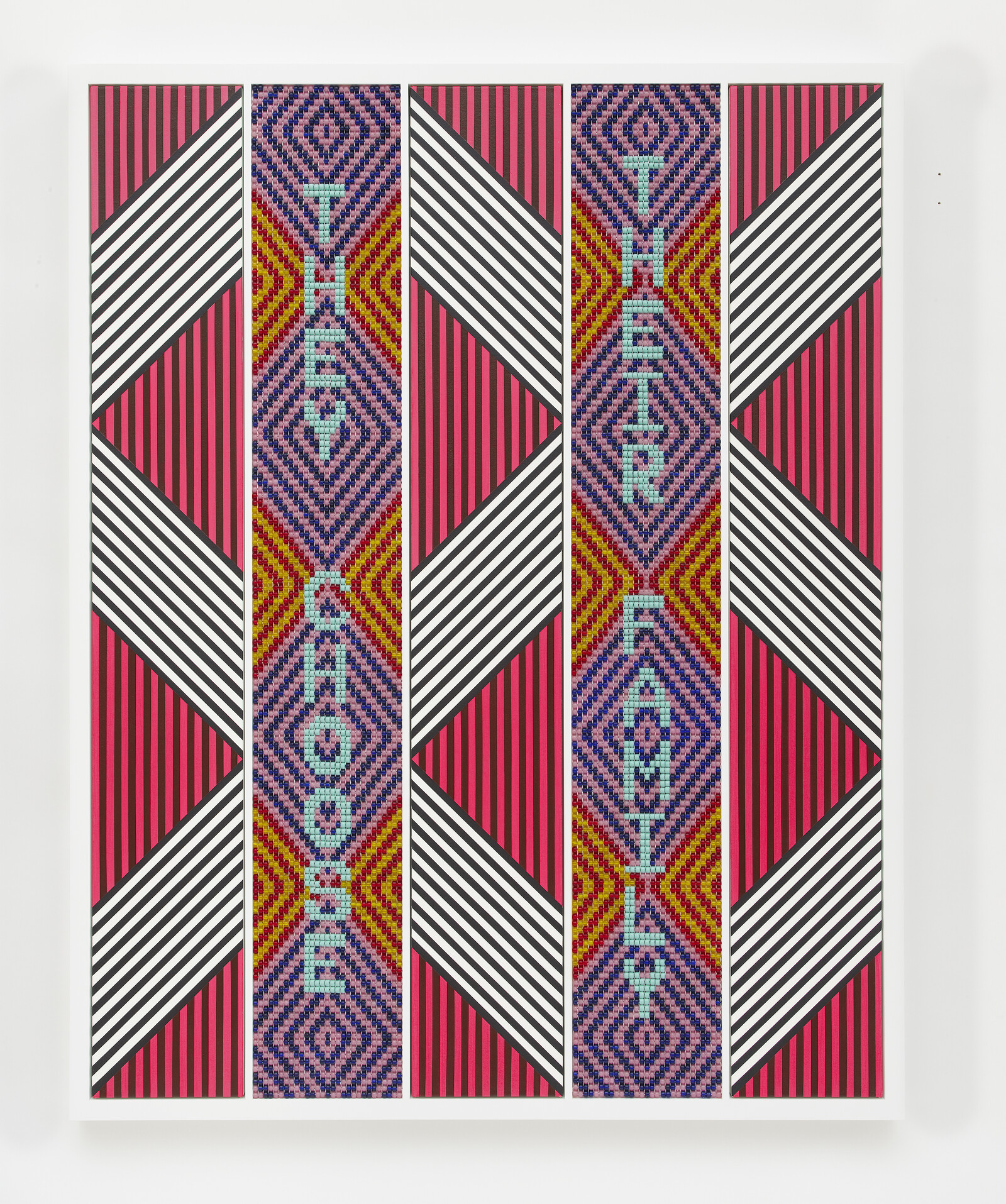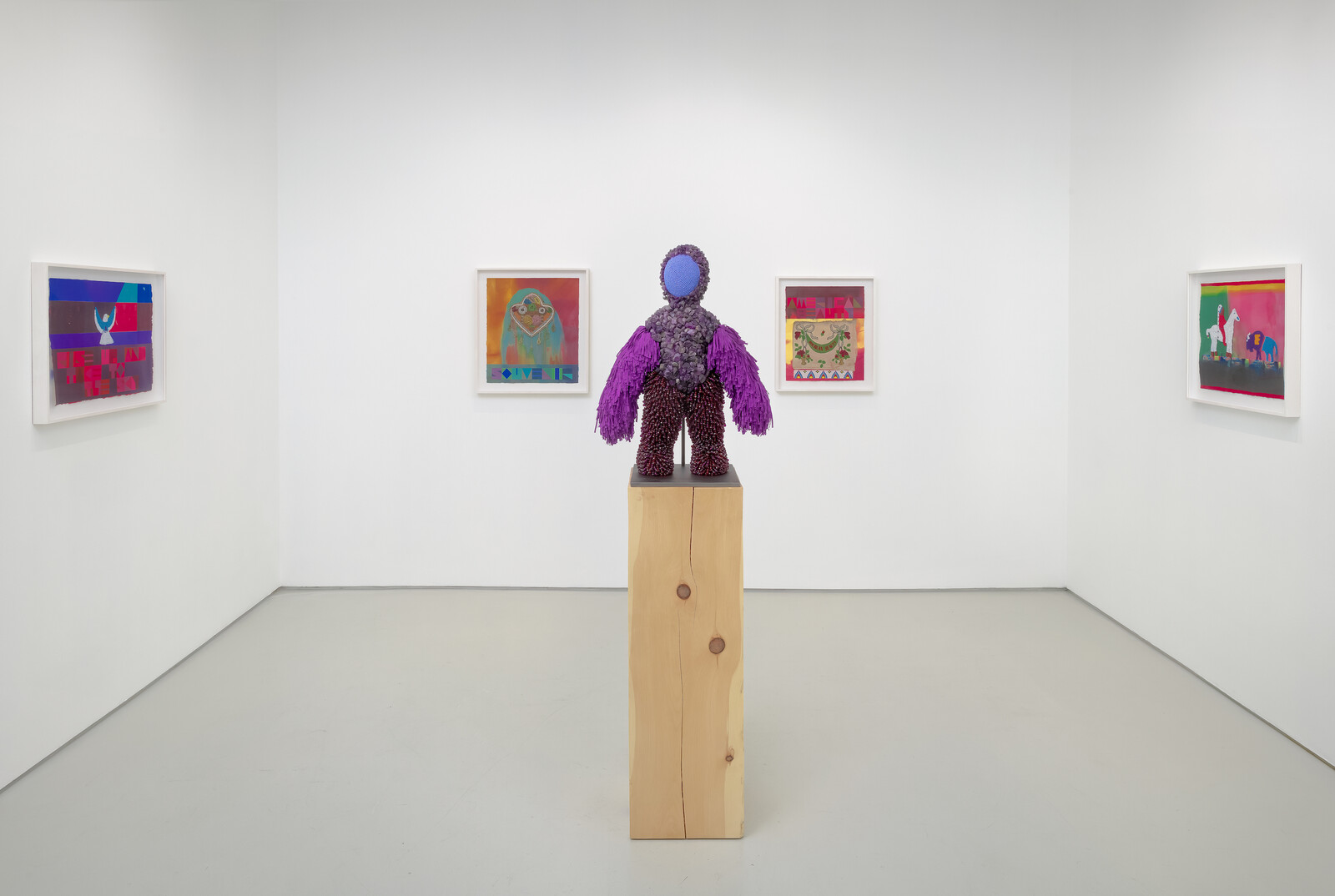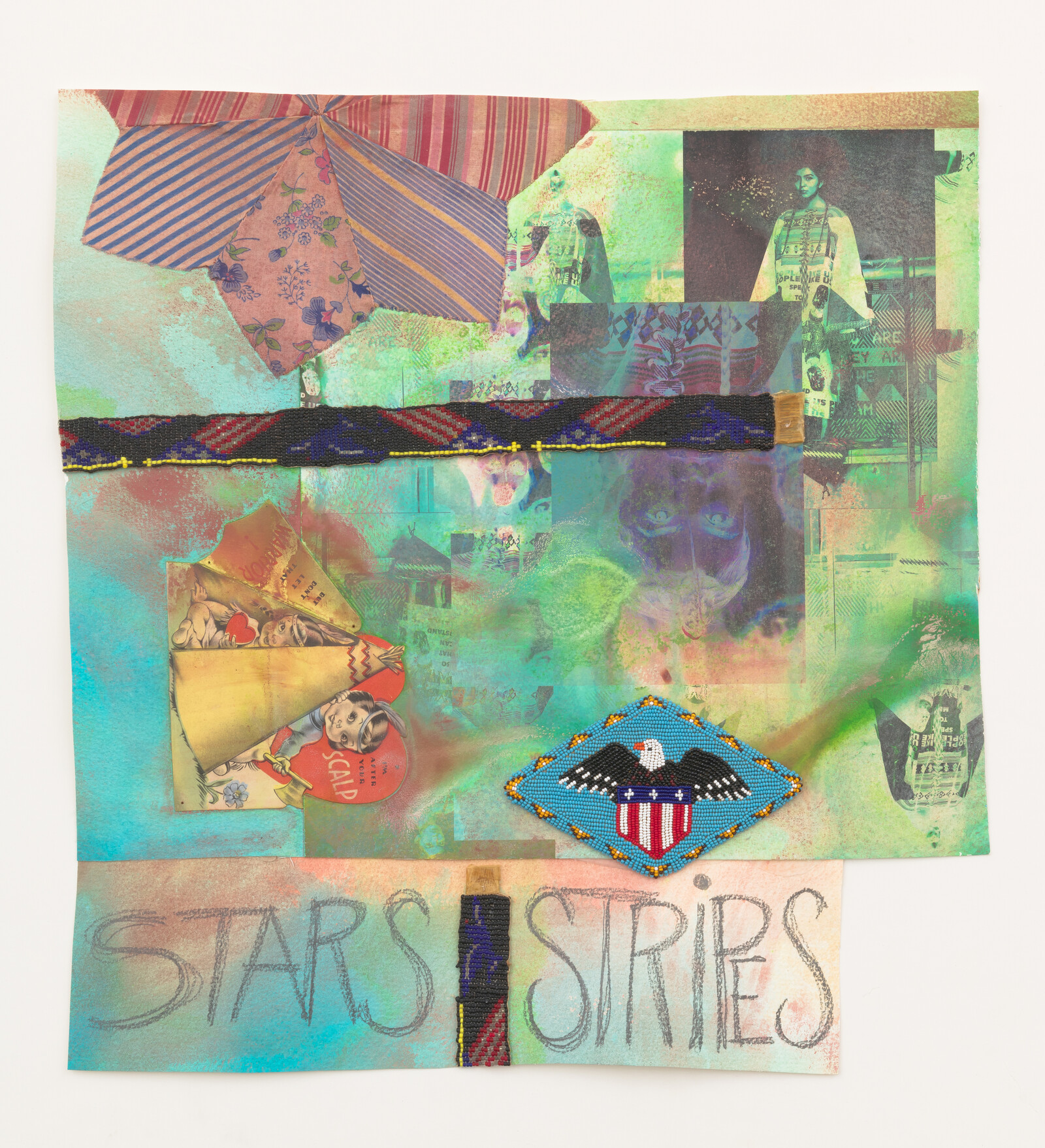Here’s a platitude: all’s fair in love and war. This, one could argue, is what Jeffrey Gibson’s solo exhibition “It Can Be Said of Them” is all about: the love being queer love, the war being that waged against queer bodies of color who cannot voice their desires without anticipating, so as to deflect, hatred. Here’s a second platitude to consider in relation to the first, one sometimes assigned to Gibson’s artistry: it is infused with joy and resistance.
It’s true that both characterize, for example, YES! WE CAN (all works 2020), one of two punching-bag sculptures at the gallery’s center. White and yellow words reading “CAN THEY SHE HE DO IT? YES WE CAN!” wind around the bag in a red-and-blue square diamond lattice. As one circles the hanging piece, it reveals its pronouns deftly, like jabs to the psyche that parry normative presumptions. This sensation carries through to the mixed-media pieces mounted on the nearby walls—combinations of acrylic paint, glass beads, and fiber materials embellished with lyrics and protest slogans. The show is a flurry of defensive moves and is more complex than the upbeat language that is often used to label it.
Another of Gibson’s punching-bag sculptures reads THE LOVE YOU GIVE IS THE LOVE YOU GET, a line lifted from The Beatles’ 1969 song “The End.” To think “punching bag” is to think about fighting from the perspective of both the fighter who throws punches and the bag that receives them. That Gibson cocoons his Everlast punching bags in sheaths of glass beads alters the puncher-punchee dynamic. Imagine striking a bag jacketed in glass; imagine doing it bare-knuckled. Skin taut across knuckles is easily split. The two hanging sculptures play off one another’s attitudes. One assumes an ironic position: the love you give is the love you get—a platitude, no more, directed at the person who throws the first punch. The other assumes resistance: they/she/he are as resilient as they are mighty. The match is over when that which is punched deflects with greater finesse and dazzle than its attacker can muster.
Gibson maneuvers the perceptive manipulations of and by language into complicated territory by giving words over to shape and color. The bright geometry of this trademark block alphabet—an element ubiquitous in the artist’s earlier paintings and employed sparingly in Sun In The Sky You Know How I Feel, Rise Up And Take To The Sky, and the other framed works on paper in this exhibition—releases letters, and the words they build, from strict legibility. The effect is heightened by the letters’ incorporation into vertiginous designs derived from Native sources (the artist is Cherokee and Choctaw). A relationship, even a kinship, is developed between letter and motif, wherein written language and rhythmic ornamentation arise from the same geometric units. IT CAN BE SAID OF THEM is one example: multicolor swatches of nylon fringe cascade beneath a beaded panel, with a relaxed lozenge weave, in which the work’s title is picked out in vibrant red. The piece riffs on Gibson’s exploration of Native American pow wow garments as apotropaic armor, yet its title is lifted from a 1969 serigraph by activist and artist Sister Corita Kent.
Kent’s print features portraits of Jesus Christ, Dr. Martin Luther King, Jr., President John F. Kennedy, and Robert Kennedy; the text in the print is itself a quotation from children’s author E. B. White. Whereas the “them” in Kent’s work honors the four historical figures for their contributions to civil justice, Gibson’s multivalent “them” honors the people for whom the fight for civil justice is an ongoing saga, including gender non-conforming actors within that social body. These players are as individual yet inextricable from social progress as any single bead sewn into any one of Gibson’s resplendent mantles. As such, Gibson’s handling of the pronoun summons the ethical stature of Kent’s subjects and the potential selfhoods made imaginable and actualized by a nuanced appreciation of language’s capabilities for—and limitations on—identity in combined personal and collective registers.
Three small sculptures of gender-free/gender-plural, cyclopic fighters on wooden plinths guard the exhibition. Two flank the flamboyant Sentinel, a target-eyed and fringe-laden figure who—it is the kind of sculpture that demands personal address—peacocks at the far end of the main gallery. The slightest atmospheric rill makes its tethers dance. To its left stands the figure humma hicha lvkna, clad in brass bells; to its right, the onyx lusa hicha tohbi. And in a small back room, ringed by drawings augmented with vintage appliqués depicting stereotypical Native imagery, stands homakbi tvli, adorned in amethyst crystals. If the bigger they come, the harder they fall, then the smaller the steadier. Gibson’s boxers never tumble. His figures, though singular, contain multitudes. Each should be lauded as “them” for the myriad, inarticulable ways they are strong.
